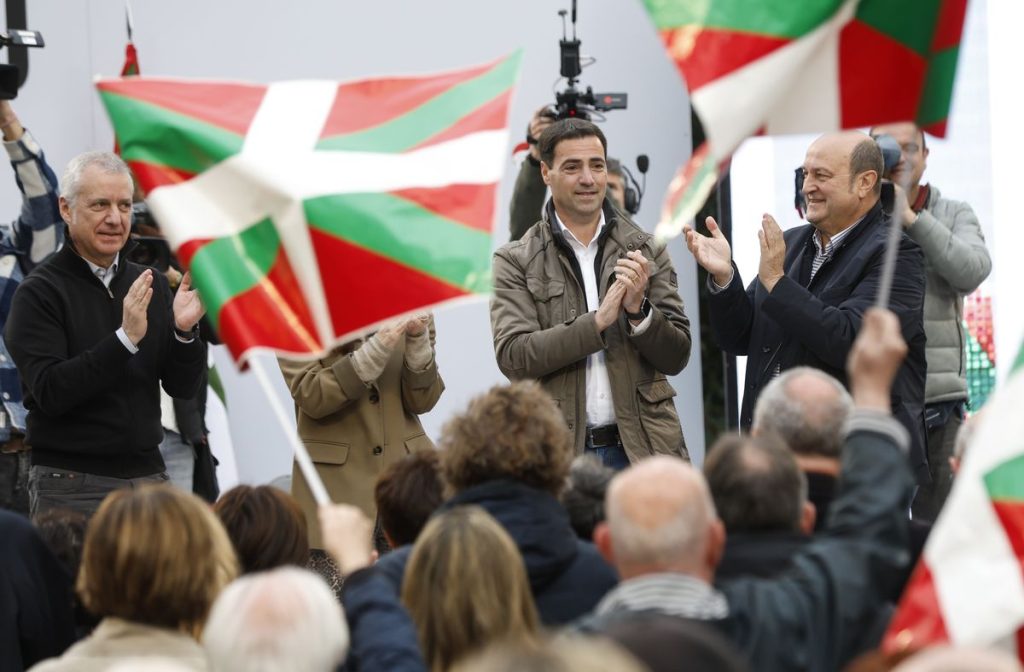On Thursday, political parties are ramping up their campaign activities in the Basque Country before the Friday deadline. The refusal of Bildu’s candidate, Pello Otxandiano, to admit that ETA was a terrorist group has been a focal point in the campaign, with other parties digging into this issue. Party leaders are increasing their presence in the Basque Country to support their candidates, with Yolanda Díaz (Sumar), Alberto Núñez Feijóo (PP), and Santiago Abascal (Vox) visiting the region on Thursday. Salvador Illa, the leader of the Catalan Socialist Party, will be supporting the leader of the PSE, Eneko Andueza, in Eibar.
The controversy surrounding Pello Otxandiano’s comments about ETA has stirred up debate and tension in the political landscape of the Basque Country. Other parties are using this issue to criticize Bildu and appeal to voters who may be wary of supporting a party that is connected to the history of terrorism in the region. The upcoming elections in the Basque Country are crucial in determining the future direction of the region, and the focus on ETA’s legacy has added another layer of complexity to the campaign.
With the deadline for campaign activities nearing, party leaders are making a final push to secure support for their candidates in the Basque Country. Visits from national figures like Yolanda Díaz, Alberto Núñez Feijóo, Santiago Abascal, and Salvador Illa are aimed at rallying voters and boosting the chances of their respective parties in the upcoming elections. The campaign trail has been filled with intense debates and discussions on a range of issues, including the history of terrorism in the Basque Country, as parties vie for the support of voters.
The presence of national leaders in the Basque Country underscores the importance of the upcoming elections and the significance of the region in the broader political landscape of Spain. The results of the elections in the Basque Country will not only have implications for the region itself but also for the broader political dynamics in the country. The campaign activities in the region have highlighted the deep-seated divisions and conflicting ideologies that define Spanish politics, with each party seeking to gain an edge in the fiercely competitive electoral race.
As the campaign enters its final stages, the focus remains on the key issues that are shaping the political debate in the Basque Country. The legacy of ETA, the future of the region, and the role of different parties in shaping its direction are all central themes in the election campaign. The candidates and parties are making their final appeals to voters, hoping to sway undecided voters and secure a victory in the upcoming elections. The outcome of the elections will not only determine the composition of the regional government but also have broader implications for the political landscape of Spain as a whole.
In the midst of the heated campaign activities, the people of the Basque Country are preparing to cast their votes and make their voices heard in shaping the future of the region. The turnout and engagement of voters will be crucial in determining the outcome of the elections and shaping the political landscape of the Basque Country in the years to come. The campaign has brought to light the deep-seated tensions and divisions that exist in the region, and the results of the elections will be a reflection of the complex dynamics at play in Basque politics.















